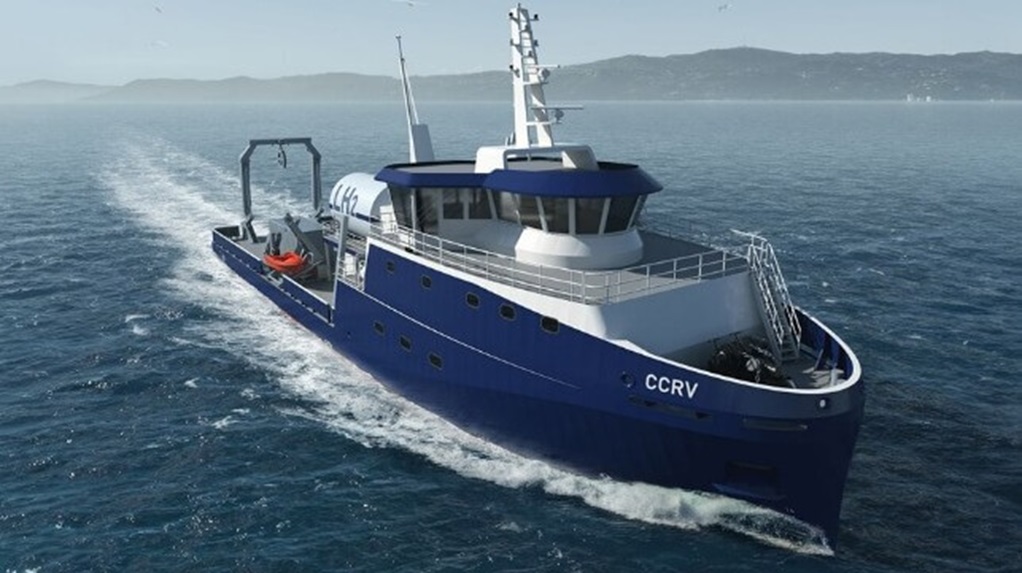Naval architecture and marine engineering firm Glosten has been awarded an Approval in Principle (AIP) by the American Bureau of Shipping (ABS) for the design of UC San Diego’s new hydrogen-hybrid Coastal-Class Research Vessel (CCRV). The CCRV will be operated by Scripps Institution of Oceanography and feature an innovative propulsion system that utilizes hydrogen fuel cells for zero-emissions operation.
Glosten and the project’s electrical integrator, Siemens Energy (SE), completed the preliminary design for the CCRV in March 2024. As an uninspected, California Air Resource Board (CARB)-compliant, ABS-classed vessel and an alternative design under SOLAS, the CCRV faced a complex regulatory regime.
In 2018, Glosten, Scripps Oceanography, Sandia National Laboratories, and DNV conducted a feasibility study funded by MARAD that became the genesis of the CCRV. The study evaluated the technical, regulatory, and economic feasibility of the Zero-V concept, a vessel powered by fuel cells and liquid hydrogen designed to meet performance and environmental criteria established by Scripps. While the study confirmed that technology had advanced enough to make a hydrogen-powered research vessel possible, regulations around the use of hydrogen fuel are still in development. During the CCRV’s preliminary design, Glosten worked closely with the United States Coast Guard (USCG) and ABS to define a regulatory approval framework for the use of liquid hydrogen aboard a research vessel.
Prior to submitting the design for AIP, Glosten successfully completed a week-long risk assessment workshop with the USCG, ABS, Scripps, Sandia, SE, and major equipment providers, Ballard Power Systems and Chart Industries.
AIP shows that the CCRV design meets the technical requirements and safety standards of ABS, but more broadly, it validates the use of hydrogen-fuel-cell propulsion for medium-sized coastal vessels. The CCRV will help Scripps and its researchers study the marine ecosystem along the California coast, running entirely on emissions-free hydrogen fuel cells for 75 percent of its missions.
The CCRV will also serve as a vital platform for hands-on learning. As a student-centered, research-focused public university, UC San Diego considers seagoing experiences a cornerstone of educational programs. The vessel will be integral to training the next generation of scientists, leaders, and policymakers.
The project team is currently progressing the CCRV to a functional-level design and assisting Scripps with a request for proposal to begin solicitation for construction.
Tags: CCRV, Glosten, Hydrogen, Vessel



Recent Posts
IMI Greater Noida Signs MoU with IME (I) to Launch A New Student Chapter
GCMD Completes World’s First Pilot Demonstrating Full Carbon Value Chain from Ship-Captured CO2 in China
NH3 Clean Energy Raises $710,000 to Advance WAH2 Clean Ammonia Project
Coventry University Collaborates with Indian Institutions to Advance Hydrogen Fuel Cell Education
Magenta Mobility partners with MOVER to power sustainable last-mile deliveries across India
Union Home Minister Amit Shah Visits Greenzo Energy’s Green Hydrogen Facility in Sanand
Godrej Enterprises Group (GEG) powers India’s smart, sustainable logistics future
Delhi Expands Electric Bus Fleet with Launch of 100 New DEVi Buses to Boost Green Mobility